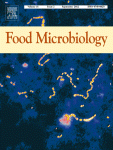 The journal Food Microbiology has pulled a 2012 paper on pork processing which, as we reported earlier, contained salami-sliced data.
The journal Food Microbiology has pulled a 2012 paper on pork processing which, as we reported earlier, contained salami-sliced data.
The article, “Bayesian inference for quantifying Listeria monocytogenes prevalence and concentration in minced pork meat from presence/absence microbiological testing,” came from a group at the Department of Food Science and Technology at the Agricultural University of Athens, in Greece.
According to the notice:
This article has been retracted at the request of the Editor in Chief.
Three articles, which described essentially the same research and used the same set of data, were published by the authors in different journals (Bayesian inference for quantifying Listeria monocytogenes prevalence and concentration in minced pork meat from presence/absence microbiological testing, Food Microbiol. 31:148–153; Estimating the diagnostic accuracy of three culture-dependent methods for the Listeria monocytogenes detection from a Bayesian perspective, Int. J. Food Microbiol. 156:181–185; Performance of three culture media commonly used for detecting Listeria monocytogenes, J. Food Prot. 75:1518–1523). Although the authors believed the analysis of the data warranted the separate papers and did not deliberately attempt to mislead, the editors and reviewers have found that the work did not justify separate publications and that the use of the same data was unacceptable. The Editors agree that the three articles should be retracted. They also agree that the authors should be given the opportunity to combine the work into one article, to be submitted for publication in one of the journals [i.e., Quantifying Listeria monocytogenes prevalence and concentration in minced pork meat and estimating performance of three culture media from presence/absence microbiological testing using a deterministic and stochastic approach (2013), Food Microbiol. 36:395-405].
One of the conditions of submission of a paper for publication is that authors declare explicitly that their work is original and has not appeared in a publication elsewhere. Re-use of any data should be appropriately cited. The scientific community takes a very strong view on this matter and apologies are offered to readers of the Journal that this was not detected during the submission process.
Based on the retraction notice, it appears the journal has already published a subsequent paper that combines all datasets.
Like Retraction Watch? Consider supporting our growth. You can also follow us on Twitter, like us on Facebook, add us to your RSS reader, and sign up on our homepage for an email every time there’s a new post.